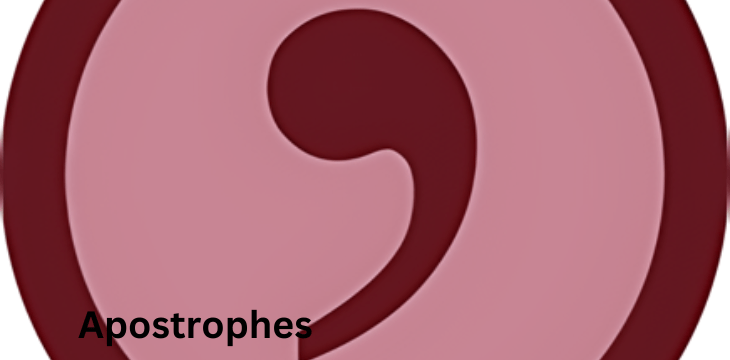What’s that little squiggle hanging out in your text, looking like it’s lost its way? That, my friend, is the apostrophe. Tiny yet mighty, this punctuation mark plays a crucial role in writing. From indicating possession to showing omissions in contractions, the apostrophe is a versatile tool that keeps our language clear and concise.
Contents
- 1 History of the Apostrophe Apostrophes
- 2 Basic Uses of Apostrophes Apostrophes
- 3 Possessive Apostrophes
- 4 Contractions and Omissions Apostrophes
- 5 Apostrophes with Pronouns Apostrophes
- 6 Misuse and Common Mistakes Apostrophes
- 7 Apostrophes in Plurals Apostrophes
- 8 Apostrophes in Literature and Quotes Apostrophes
- 9 Cultural Variations Apostrophes
- 10 Apostrophes in Digital Communication Apostrophes
- 11 Teaching Apostrophes Apostrophes
- 12 Apostrophes in Branding and Marketing Apostrophes
- 13 Conclusion
History of the Apostrophe Apostrophes
The apostrophe has an interesting history. It originated from the Greek word “apostrophos,” meaning “turning away” or “omission.” The mark first appeared in the French language during the 16th century and eventually found its way into English. Over the centuries, its use has evolved, adapting to the changing needs of language and writing.
Basic Uses of Apostrophes Apostrophes
Indicating Possession Apostrophes
When you want to show that something belongs to someone, the apostrophe is your go-to. For example, “Sarah’s book” tells us the book belongs to Sarah.
Showing Omissions in Contractions Apostrophes
Apostrophes are also handy for indicating missing letters in contractions. For instance, “do not” becomes “don’t,” with the apostrophe standing in for the omitted “o.”
Possessive Apostrophes
Singular Possession Apostrophes
To show that something belongs to one person or thing, you add an apostrophe and an “s” to the end of the noun. For example, “the cat’s toy” means the toy belongs to the cat.
Plural Possession Apostrophes
When dealing with plural nouns, the apostrophe goes after the “s.” So, “the dogs’ owner” indicates that the owner belongs to multiple dogs.
Special Cases Apostrophes
Names ending in “s” can be tricky. Both “James’s book” and “James’ book” are acceptable, though the former is more common in American English.
Contractions and Omissions Apostrophes
Common Contractions Apostrophes
You’ll often see apostrophes in contractions like “it’s” (it is) and “we’re” (we are). These contractions make speech and writing more fluid and natural.
Informal Speech and Writing Apostrophes
In casual contexts, contractions are more prevalent. Phrases like “I’m” (I am) and “you’re” (you are) help keep conversations relaxed and engaging.
Apostrophes with Pronouns Apostrophes
Possessive Pronouns Apostrophes
Interestingly, possessive pronouns like “yours,” “hers,” and “theirs” do not require apostrophes. They’re already possessive by nature.
Reflexive Pronouns Apostrophes
Reflexive pronouns (myself, himself, herself) also don’t need apostrophes, as they indicate action turned back on the subject.
Misuse and Common Mistakes Apostrophes
Plural vs. Possessive Confusion Apostrophes
One of the most common mistakes is confusing plurals with possessives. Remember, plurals just need an “s,” while possessives require an apostrophe. “Cats” means multiple cats, but “cat’s” means something belongs to a cat.
Misplaced Apostrophes
A misplaced apostrophe can change the meaning of a sentence. For example, “its” is possessive (belonging to it), while “it’s” is a contraction for “it is.”
Apostrophes in Plurals Apostrophes
Plural Forms of Letters, Numbers, and Symbols Apostrophes
Apostrophes can sometimes be used to clarify plurals of letters, numbers, and symbols. For example, “Mind your p’s and q’s” uses apostrophes to avoid confusion.
Avoiding Overuse Apostrophes
However, be cautious not to overuse apostrophes. They should only be used when absolutely necessary to avoid cluttering your text.
Apostrophes in Literature and Quotes Apostrophes
Style Guides and Rules Apostrophes
Different style guides have varying rules for apostrophe use. The Chicago Manual of Style and the AP Stylebook, for instance, offer detailed guidelines on how to use them correctly.
Examples from Famous Works Apostrophes
Many classic works of literature use apostrophes in their titles and texts. For example, Mary Shelley’s “Frankenstein” or Shakespeare’s plays often showcase the proper use of apostrophes.
Cultural Variations Apostrophes
Apostrophes in Different Languages Apostrophes
Different languages have unique rules for apostrophes. In French, for instance, they’re used to indicate omitted letters in contractions like “l’école” (the school).
Variations in Usage and Rules Apostrophes
These variations can sometimes lead to confusion for multilingual writers, so it’s important to understand the specific rules of each language you’re writing in.
Apostrophes in Digital Communication Apostrophes
Texting and Social Media Apostrophes
In the fast-paced world of texting and social media, apostrophes often get dropped for the sake of speed. However, proper usage still matters for clarity and professionalism.
Trends and Shortcuts Apostrophes
You might see trends like using “dont” instead of “don’t” in informal settings, but in professional writing, sticking to proper grammar is key.
Teaching Apostrophes Apostrophes
Strategies for Educators Apostrophes
Educators can use interactive exercises and real-world examples to teach students about apostrophes. Games and quizzes can make learning fun and engaging.
Resources and Tools Apostrophes
There are plenty of resources available, from grammar books to online tools like Grammarly, which help writers use apostrophes correctly.
Apostrophes in Branding and Marketing Apostrophes
Company Names and Slogans Apostrophes
Apostrophes can impact brand perception. A well-placed apostrophe can make a brand name or slogan more memorable and professional.
Impact on Brand Perception Apostrophes
Incorrect usage, on the other hand, can detract from a brand’s credibility. It’s essential to get it right in marketing materials.
Fun Facts and Trivia Apostrophes
Interesting Anecdotes Apostrophes
Did you know the apostrophe once faced extinction? In the early 2000s, some proposed eliminating it to simplify English, but it survived due to its importance in clarity.
Quirky Usages Apostrophes
There are quirky uses of apostrophes in pop culture, like in movie titles (“Howl’s Moving Castle”) and band names (“Guns N’ Roses”).
Conclusion
The apostrophe might be small, but it’s mighty in its impact on writing. Whether showing possession, creating contractions, or adding clarity, this punctuation mark is indispensable. So next time you write, give the apostrophe the respect it deserves!
